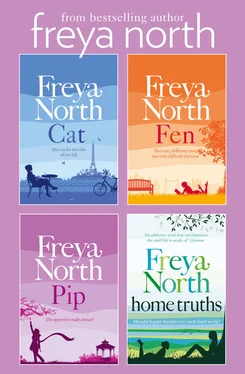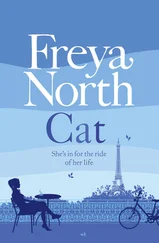‘A Spaniard riding for a French team is a coup enough,’ Fabian interjects, touching his nose as if it is out of joint. ‘Can we really expect him to turn up any earlier than the last minute, for something as trivial as a team meal?’
Before Jules can answer on Carlos’s behalf, the waiters arrive with miniature portions of sorbet which everyone samples but, being tomato and basil sorbet (of which, undoubtedly, Django McCabe would have been proud), no one much likes.
Jules raises his glass of Burgundy. ‘Here’s to the jerseys. And they are most definitely plural. The yellow. The green. The polka dot. Fabian. Jesper. Carlos. Here’s to Système Vipère. Salut. ’
‘Vive le Tour,’ says Fabian, gulping wine and then tucking into duck.
‘Vive le Tour,’ says Jesper, thinking of Anya, wishing she were here and apprehensive about a certain coldness that will greet him at home that night.
Carlos Jesu Velasquez had no compunction at being absent from the team dinner in France.
‘I am to spend over three weeks in your country so that night I will dine with my wife,’ he had said to Jules previously by telephone.
He must feel special, Jules had reasoned to himself, so I will make it seem a gesture of my respect that he needn’t be present for the dinner. Realistically, he would not add much in the way of scintillating conversation to the evening. In truth, it is not important to the team or the Tour whether he eats escargots with us or paella with his family.
Carlos Jesu Velasquez is nicknamed the Pocket Rocket, like the energy bars of that name which the riders carry with them, on account of his small stature but enormous potency. Carlos Jesu is also known as the Cicada for he speaks little. He speaks no other language than Spanish but even amongst the Spanish riders he is frugal with communication. He uses his tongue and his lips to address the peloton, hissing or clicking at riders to move away, to work with him, to get out of his line. Carlos is also known as the Little Lion, for when the little climber wins at a mountain finish he lets out a guttural roar utterly inconsistent with his diminutive size and quiet mien. His wife, Marie-Christina, however, calls him Jesu with a throatily pronounced ‘h’. His three children call him Papa.
This evening, he walked his three children across the street to his mother-in-law’s. He then went back to his house, closed the door and made love to Marie-Christina. Then he sang to her. Tomorrow, he will travel to Eustace St Pierre.
‘Away on business,’ he whispers soothingly to his wife, ‘but home again soon.’
If I were to meet the inimitable Fabian Ducasse, what exactly would I say? Cat wondered, on her way in to the Guardian office to discuss their requirements and other practicalities.
He’s famed as a womanizer, so should I concede that he might be more willing to talk, to grant me an audience, if I wore a skirt? I’d have to think of a slant – not just ‘Are you going to win the Tour de France, Monsieur Ducasse?’ Perhaps I could ask him about sport and adulation – would he do it if he didn’t get it? I want to tap in to that arrogance to see if it’s a front or genuine. Not that I care which – it has the desired effect on me for one.
Is there time to learn a little Spanish? Mind you, just a grunt from Carlos Jesu Velasquez would suffice. And how about Jesper? Is there anything that comes close to hearing English spoken with a Dutch accent?
I can’t believe I’m soon to be there. In France. With them. What’ll I say?
Конец ознакомительного фрагмента.
Текст предоставлен ООО «ЛитРес».
Прочитайте эту книгу целиком, купив полную легальную версию на ЛитРес.
Безопасно оплатить книгу можно банковской картой Visa, MasterCard, Maestro, со счета мобильного телефона, с платежного терминала, в салоне МТС или Связной, через PayPal, WebMoney, Яндекс.Деньги, QIWI Кошелек, бонусными картами или другим удобным Вам способом.












